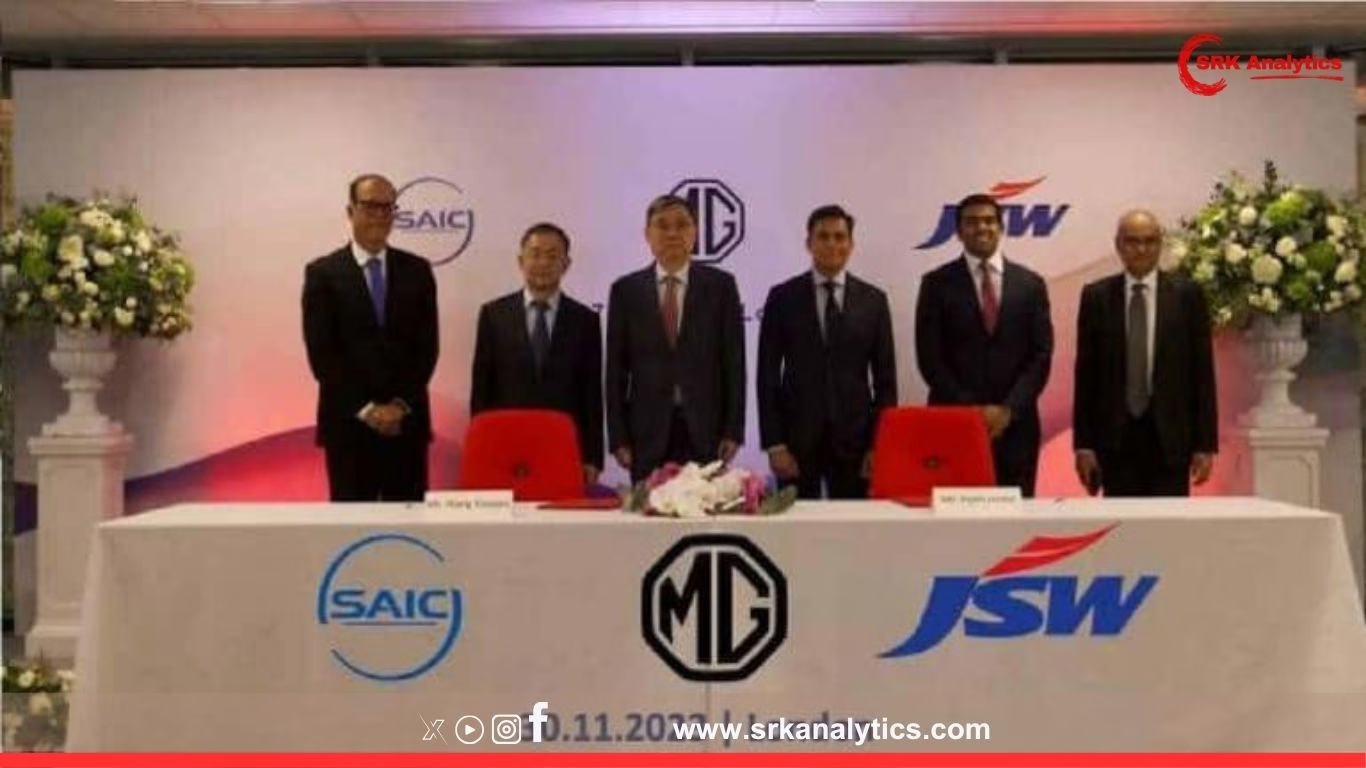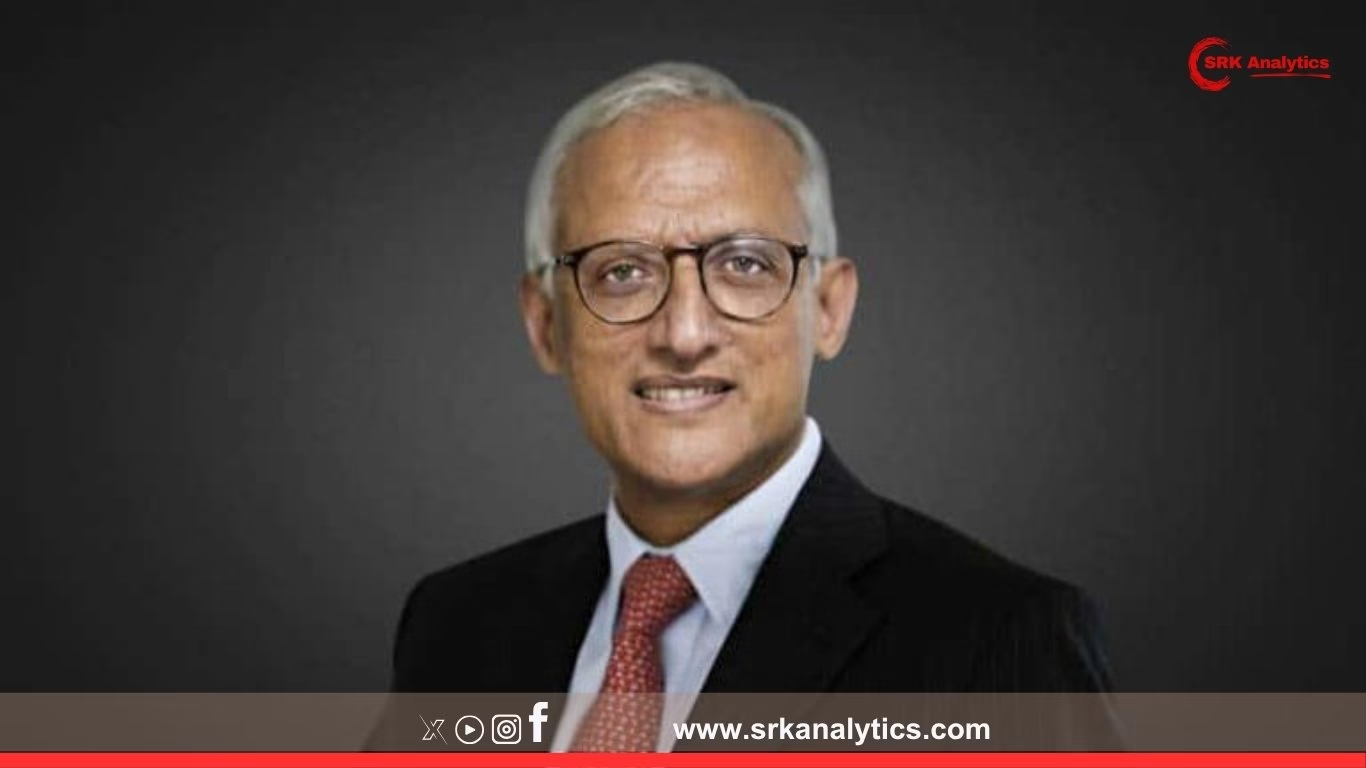In a strategic move to strengthen its presence in India’s rapidly evolving automotive market, JSW Group is reportedly planning to increase its stake in JSW MG Motor India, aiming to emerge as the single-largest shareholder. The development comes months after JSW Group entered into a joint venture with SAIC Motor, the parent of MG Motor India, to accelerate localisation and electric vehicle (EV) production in India.
JSW Group’s strategic vision for auto sector dominance
JSW Group, led by Chairman Sajjan Jindal, has been actively diversifying from its core steel and energy businesses into emerging sectors such as electric mobility, paints, and cement. By becoming the single-largest shareholder in JSW MG Motor India, the conglomerate seeks to strengthen its footprint in the automotive sector, particularly in EVs and hybrid technology.
JSW MG Motor India ownership structure
Currently, MG Motor India is a wholly owned subsidiary of China’s SAIC Motor. In December 2023, JSW Group announced a joint venture with SAIC, acquiring a 35% stake in MG Motor India to infuse fresh capital, enhance localisation, and scale up EV operations.
| Stakeholder | Current shareholding (%) | Proposed shareholding (%) |
|---|---|---|
| SAIC Motor (China) | ~65 | Expected to dilute to below 50 |
| JSW Group | 35 | Expected to rise to majority stake |
| Others | 0 | Minimal or strategic minority investors |
Source: Industry estimates
If the proposed share acquisition is finalised, JSW Group could emerge as the controlling shareholder, marking a significant shift in MG Motor India’s ownership from Chinese to Indian majority control, aligning with India’s push for Atmanirbhar Bharat in strategic sectors.
Strategic rationale behind stake hike
- EV manufacturing ambitions: MG Motor has an established EV lineup with the ZS EV and Comet EV. JSW Group plans to leverage this to integrate its battery and green energy ecosystem for backward integration.
- Policy compliance: Indian government’s policies encourage local ownership in auto manufacturing to reduce geopolitical and supply chain risks.
- Capital infusion needs: MG Motor India requires significant capital to expand capacity, launch new EV models, and strengthen its dealership and after-sales network amid rising competition from Tata Motors, Mahindra, and global entrants.
- Brand diversification: JSW aims to enter India’s mass-market passenger vehicle segment beyond steel-intensive commercial vehicle and EV battery projects.
Industry expert views
According to automotive analysts, JSW Group’s controlling stake in MG Motor India could:
- Accelerate localisation of EV components and battery packs.
- Improve market sentiment towards MG brand, often impacted by its Chinese origin perceptions.
- Enhance synergy for JSW Energy and battery investments under the green mobility umbrella.
A senior analyst at Nomura India said:
“This move will strengthen JSW Group’s auto strategy, positioning them as an integrated EV player from steel for car bodies to EV battery manufacturing and passenger vehicle assembly.”
MG Motor India’s performance and future plans
Despite ownership restructuring, MG Motor India has performed well in recent years, with a 10% market share in India’s EV segment. Its upcoming launches include:
- MG Cloud EV: An urban compact EV expected in late 2025.
- MG Gloster facelift and ZS EV upgrade: To strengthen premium SUV offerings.
- Potential small electric hatchback: Targeting mass EV adoption with sub-₹10 lakh pricing.
Financial performance highlights (FY23-FY25E)
| Particulars | FY23 (₹ crore) | FY24E (₹ crore) | FY25E (₹ crore) |
|---|---|---|---|
| Revenue | 5,400 | 6,900 | 8,250 |
| EBITDA | 240 | 350 | 470 |
| PAT | 45 | 75 | 110 |
| EV sales share (%) | 8 | 13 | 20 |
(Source: Industry estimates, company filings)
Challenges ahead
While the strategic shareholding increase will boost investor confidence, JSW MG Motor India must navigate:
- Supply chain localisation challenges amid rare earth magnet and battery material shortages.
- Intense price wars in the Indian EV market led by Tata Punch EV, Tiago EV, Mahindra XUV400, and upcoming Maruti EVs.
- Brand repositioning efforts to establish itself as a fully Indian company under JSW’s majority control.
JSW Group’s larger automotive ambitions
Apart from the MG Motor JV, JSW Group is evaluating opportunities in:
- Electric commercial vehicles
- Battery manufacturing under the PLI ACC scheme
- EV charging infrastructure in collaboration with state DISCOMs
In June 2025, JSW also finalised land acquisition in Gujarat for its upcoming integrated EV and battery manufacturing park, expected to attract cumulative investments of over ₹40,000 crore in the next 5-7 years.
Conclusion
JSW Group’s plan to emerge as the single-largest shareholder in JSW MG Motor India signals a strategic shift towards integrated green mobility leadership. By combining its strengths in steel, energy, and now automobiles, JSW aims to build a future-ready conglomerate aligned with India’s decarbonisation and self-reliance goals.
Market analysts will keenly watch regulatory approvals, deal structuring, and upcoming EV product launches as JSW MG Motor India repositions itself for an aggressive growth trajectory.
Disclaimer
This news content is for informational purposes only and does not constitute investment or strategic business advice. Readers are advised to consult certified financial analysts or business consultants before making investment or partnership decisions based on the content.











